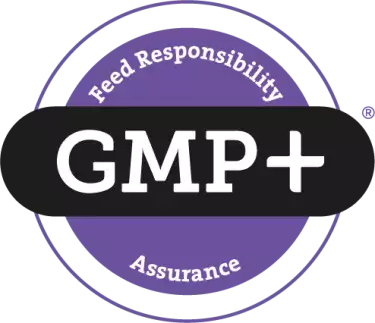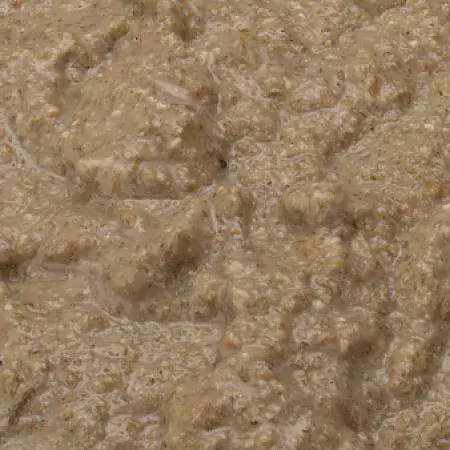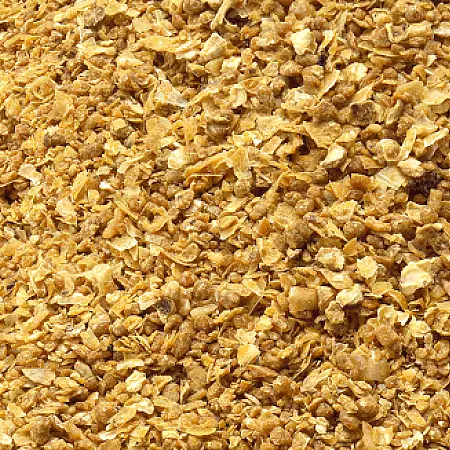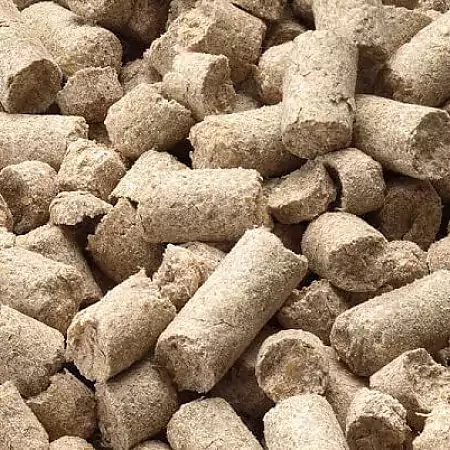Corn-DDGS for insect nutrition
Corn-DDGS is released during the extraction of alcohol from maize. The corn is ground and fermented into alcohol. During this process, Corn-DDGS is also released. The co-product is characterized by its good taste and high fat and protein content.
Quality
The product complies with laws and regulations. Mycotoxins, insecticides, pesticides and herbicides are tested according to the GMP+ FSA. The product is non-GMO (according to Regulation (EC) 1829/2003 and 1830/2003).
Valid from 27 July 2022
Valid from 27 July 2022
Levels are based on averages and stated in grams per kg of dry matter, unless stated otherwise. Changes in product composition are reserved.
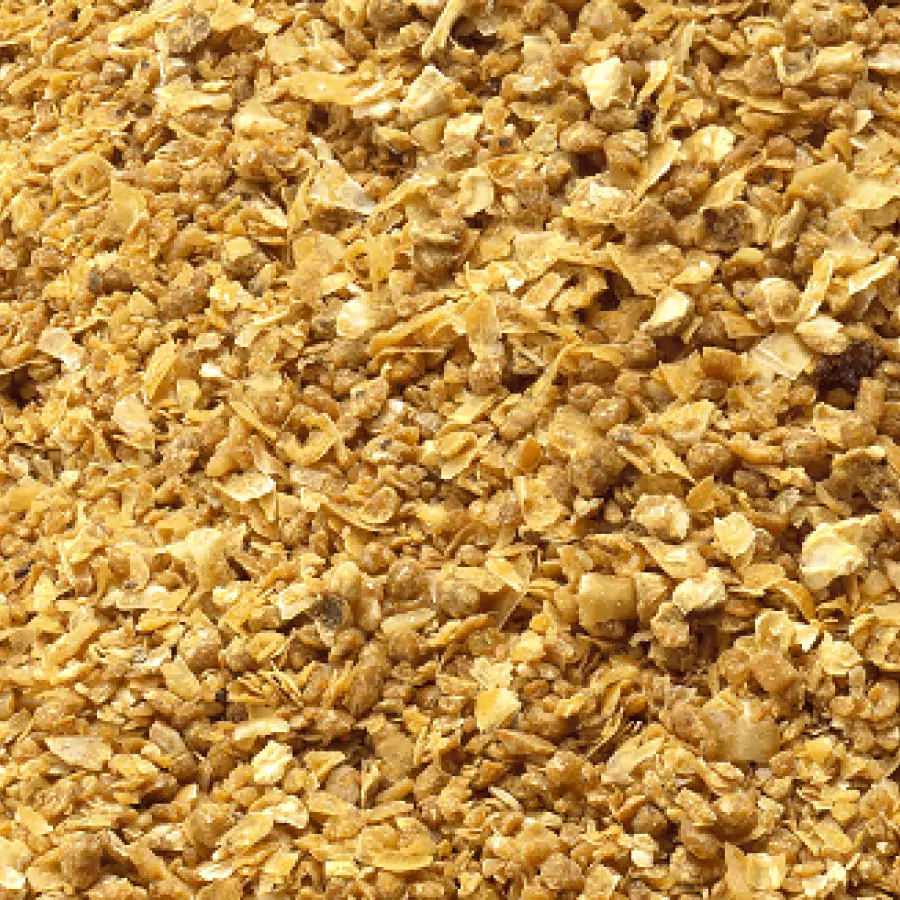
Feeding advice based on DS of total ration
Logistics & Storage

I would like to know more about this product
Receive an email or get a call back from one of our specialists.
Frequently asked Questions about Corn-DDGS
Below are the questions commonly asked about the co-product Corn-DDGS for insects, do you have any other questions about the co-product? Then please contact us.
- Is the co-product Corn-DDGS suitable for insect feeding?
The co-product Corn-DDGS is very suitable as insect food e.g. for mealworms or (soldier) flies. The insect co-product Corn-DDGS has the appropriate certification. Are you looking for more co-products? Looop has a wide range of co-products suitable as feed for insects.
- How should you store and preserve the co-product Corn-DDGS for insects?
The co-product Corn-DDGS is stored in an dry feed silo or trench silo.
- What is the shelf life of the co-product Corn-DDGS for insects?
The shelf life of the co-product Corn-DDGS for insects is 4 months
- Is it permitted to feed the co-product Corn-DDGS to insects?
The European Union only allows co-products with a GMP+ certification to be fed to insects. These co-products have also been found safe for animal feed. The co-product Corn-DDGS for insects has a GMP+ certification which makes the co-product Corn-DDGS suitable for feeding insects such as a flies or larva.
- Who can I contact about the co-product Corn-DDGS for insects?
Do you have any questions about the co-product Corn-DDGS? Or would you like to know more about the different co-products that can be used as insect feed? Get in touch with: Kelly Vermeer. You can reach Kelly by sending an email to kvermeer@looop.company or by calling +316 23 43 26 41.
- What other co-products are generated during the processing of corn?
Several co-products are generated during the processing of corn. Alongside the co-product of Corn-DDGS, the processing of corn also yields Corn feed meal RO, Corn energy and Corn feed meal PL. These co-products are highly suitable as insect feed.


